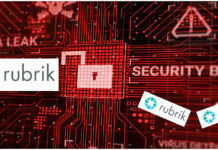Ataccama has announced Data Quality Gates, an extension of its data quality suite that validates data in motion across the data stack. The new capability applies rules in real time, intercepting unfit inputs before they distort analytics, compromise compliance reporting, or degrade AI models. By running checks in real time as data flows through pipelines, it prevents invalid records before they contaminate downstream systems. Instead of surfacing only after they hit dashboards or reports, flawed inputs such as incomplete transaction codes or restricted country data are intercepted immediately. This “shift-left” approach reduces remediation costs, lowers compliance risk, and ensures AI and analytics are powered by trusted inputs, the company claimed.
…
Big data analytics supplier Cloudera has developed a sovereign data and AI platform specifically for the AWS European Sovereign Cloud. Cloudera is working with AWS to provide joint customers with a sovereign-by-design data and AI platform to store and analyze data within EU borders. This sovereign-by-design system will align with regional sovereignty and compliance mandates, we’re told, making it especially well-suited for highly regulated industries and public sector organizations.
…
DDN has released an SK Telecom case study describing its role in the Petasus GPUaaS cloud, about which VAST Data has also released a case study. SK Telecom is studiously quiet about the role of the two storage vendors in its GPUaaS development. Neither acknowledges the other’s role in SKT’s GPUaaS development or offering. Our understanding is that:
- Both DDN and VAST Data have been involved with the SK Telecom Petasus GPUaaS development in South Korea. DDN initially, followed by VAST Data.
- Later, VAST Data was also involved with Petasus in South Korea and DDN is now involved with Petasus in Japan.
- It also appears that the Petasus cloud can work with either DDN EXAScaler or VAST Data storage.
Neither supplier has responded to requests to confirm or deny this.
…
ExaGrid released a new AI-powered RTL feature: Auto Detect & Guard. According to the pitch, the Auto Detect & Guard feature monitors all daily operational deletes, trains/learns, and creates patterns. If a delete request is outside of the pattern, the customer’s IT team is alerted and ExaGrid automatically extends the delayed delete policy so data in the Repository Tier is never deleted. If the delete was an operational delete, the IT team can clear the alert and ExaGrid will return to the original delayed delete policy. This provides two benefits: an early warning of a possible cyber attack where the attackers are trying to delete the backup data and ensuring that the backup data is not deleted on ExaGrid’s non-network-facing Repository Tier.
…
Data source connector and mover Fivetran announced GA of the Oracle Binary Log Reader, a new replication method within its managed service that enables high-volume, low-latency replication from Oracle databases. Fivetran is also expanding its Oracle offering with several features intended to give customers more flexibility and control over their data pipelines. Oracle as a destination allows enterprises to integrate data from more than 700 pre-built sources – or custom pipelines built with the Fivetran Connector SDK – directly into Oracle, providing an automated path to centralize data for analytics and AI. New row filtering capabilities let teams replicate only the data they need, reducing costs and improving downstream performance, while data type locking ensures consistency between source and destination systems by locking data types for critical workloads.
…
Data security supplier Forcepoint announced the expansion of its Self-Aware Data Security platform to protect enterprise databases and structured data sources. It extends AI Mesh Data Classification technology across both structured and unstructured data throughout the hybrid enterprise, delivering unified Data Security Posture Management (DSPM) and adaptive data loss prevention in a single platform. As enterprises accelerate SaaS, cloud, and AI adoption, structured data remains a critical blind spot. Databases and data lakes house customer records, financial assets and intellectual property but have lacked consistent visibility and policy enforcement alongside files, emails, and SaaS apps. By extending AI Mesh Data Classification to structured sources, Forcepoint enables organizations to discover, classify and remediate risks in real time with a single-policy framework.
…
Hitachi Vantara is working toward a strategic partnership with Supermicro, to combine Supermicro’s GPU and AI compute capabilities with the performance and scale of Hitachi Vantara’s Virtual Storage Platform One (VSP One), giving enterprises a foundation for driving AI infrastructure, mission-critical applications and data-intensive workloads. The parties are finalizing terms of an agreement that would enable Supermicro to sell VSP One to its customers, and Hitachi Vantara will be able to sell Supermicro servers, storage, GPUs, and hardware systems, broadening availability through established channels. The companies anticipate making these technologies available through global channels, including VSP One Block, VSP One SDS (block) and VSP One Object. [We’re told VSP One file wil also be involved.] VSP One can also be managed through the VSP 360 unified control plane, which integrates data management tools across a storage environment to monitor key performance indicators, including storage capacity utilization and overall system health.
…
Kioxia has announced an expanded RocksDB plug-in that ups SSD lifespan and performance in multi-drive RAID environments. In a 4-drive RAID 5 setup, Kioxia’s new plug-in reduced write amplification factor (WAF) by approximately 46 percent and boosted throughput to 8.22x the performance of MDRAID (Linux software RAID). In a 2-drive mirrored configuration, WAF was reduced to approximately 1/3 and achieved throughput of 1.45x compared to MDRAID. The technology achieves these gains by consolidating data writes, so they are written sequentially – preventing data fragmentation and reducing garbage collection. Kioxia will release the plug-in as an open-source contribution. The new plug-in will be featured with the Kioxia XD8 Series SSD in a live demonstration at the Kioxia booth (A51) during the 2025 OCP Global Summit.
…
NetApp says a global study it conducted with IDC shows the AI race is no longer about who adopts AI first, but who builds the strongest foundation behind it. The research finds that organizations with the most advanced data and infrastructure strategies are pulling ahead, translating AI experimentation into business results. According to the study, these “AI Masters” are seeing 24 percent revenue gains and 25 percent cost savings compared with less mature peers.
…
VAST Data says it has a customer with 1.5 EB of storage capacity. That would equate to, for example, more than 24,400 of Solidigm’s 61.44 TB QLC drives. We suspect it’s an AI-focused hyperscaler deployment – potentially Coreweave or Colossus.
…
ReRAM developer Weebit Nano has taped-out (released to manufacturing) test chips featuring its embedded Resistive Random-Access Memory (ReRAM) module at onsemi’s 300mm production fab in East Fishkill, NY. The chips are being developed in onsemi’s Treo platform, which is a 65nm Bipolar-CMOS-DMOS (BCD) process. Coby Hanoch, CEO of Weebit Nano, said: “Our collaboration with onsemi is progressing rapidly, and this successful tape-out marks a major milestone in completing the technology transfer of Weebit ReRAM to onsemi’s advanced BCD process. We’ve already validated our technology on multiple wafer lots using onsemi’s tools and flow, optimizing the process and demonstrating solid performance and reliability. We’re now progressing towards qualification.”








